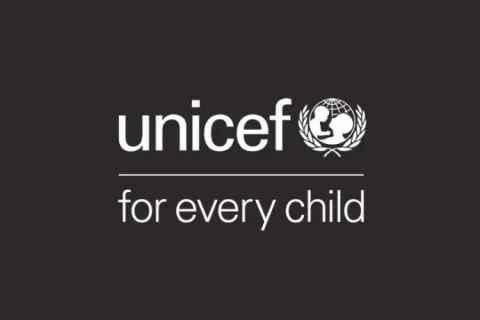Childhood upended by war in Ukraine
One month on, displaced children and their families are in desperate need of safety, stability and protection.

- Available in:
- English
- русский
After a month of war in Ukraine, children continue to be killed, injured and deeply traumatized by the violence all around them. Millions of children have had their lives upended in the most devastating way. The war has caused one of the fastest large-scale displacements of children since World War II – a grim milestone that could have lasting consequences for generations to come.
UNICEF is scaling up its response to the increasing humanitarian needs in Ukraine and among refugees in neighbouring countries, working with partners to ensure the protection and well-being of women and children. Here are the faces and voices of some of the families whose lives have been turned upside down by the war.

“Our kids need oxygen.”
Doctors and nurses caring for newborn children in the basement of a medical complex in Kharkiv, Ukraine, have gone days at a time without leaving the basement as they cared for pregnant women and newborn babies. UNICEF is delivering medical supplies including personal protection equipment and medical, surgical and obstetric kits, for distribution in Ukraine.

“The explosions kept coming closer. We had to leave.”
Mikhail and his family fled from a village not far from Odessa, a port city in southern Ukraine. “We kept on hearing the bomb sirens go off, we kept hearing the bombs exploding in the distance,” he says. “We hardly slept for days, and I didn’t know anymore how to keep them safe.”

“We have nowhere to go.”
Olga fled Ukraine with her two children, Timor and Vladimir, who are among the more than 1.8 million children who have crossed into neighbouring countries. Whenever children are driven from their homes by conflict, their exposure to danger escalates. In addition to the risk of being injured or killed by weapons and explosive munitions, displaced children face numerous challenges in transit, particularly if they are separated from parents or caregivers.

“She loves to draw her dog, Zak.”
Sofiya has been drawing with a pen and paper from an early childhood development kit provided by UNICEF. She’s staying with her mother in a UNICEF tent near the Poland-Ukraine border operated by a local organization that uses UNICEF supplies including blankets and recreation kits. UNICEF has dispatched trucks to neighbouring countries including Poland that are carrying health supplies, hygiene kits, education and recreation supplies, blankets and winter clothing.

“The reason why I’m here is my daughter.”
Maria fled with her daughter from Kyiv to Romania as the conflict intensified. “She was very afraid,” Maria says. Families displaced by the violence are terrified, in shock and desperate for safety. UNICEF and UNHCR, in cooperation with local authorities and other partners, are activating Blue Dot hubs – one-stop safe spaces that provide crucial support to families, women and children on the move – in neighbouring countries, including Romania and Moldova.

“We have to leave our homes, our relatives, our friends.”
Leona sits with her mother at the Blue Dot hub in Sighetu Marmatiei, Romania. “It’s like in the movies, but this is not a movie,” Leona’s mother says. “This is reality. This is our lives.” At Blue Dots like the hub in Sighetu Marmatiei, families can receive essential services delivered by UNICEF and other agencies, including information and advice desks where families on the move can find out about the support and services available to them as refugees (including from host countries), humanitarian agencies, civil society organizations and others.

“I worry for him all the time.”
At a Blue Dot hub at a refugee reception centre close to the Palanca border crossing near the Moldova-Ukraine border, a child psychologist has been talking with children such as Igor, who fled with his family from Odessa. Igor’s mother says her husband brought them to the border, but he had to return to their home in Odessa, despite the dangers. The children miss their father “a lot already,” she says. “I worry for him all the time.”

“If the war stops then we will go back.”
Axana also fled with her family in Odessa. They have been receiving support at a Blue Dot hub in Chisinau, Moldova. “If the war stops then we will go back. My youngest two children, especially, are making friends, they have toys and a place to play.” Blue Dot hubs provide a safe, welcoming space to rest, play and simply be a child, at a time when their world has been abruptly turned upside down in fear and panic, and they are facing the trauma of leaving family, friends and all that is familiar.

“Every child is different, with different needs.”
The Blue Dots also provide counselling and psychosocial support for children, parents and caregivers. Psychologists, social workers and other trained professionals are on hand to identify children who might need further support, especially unaccompanied or separated children. “What we do here is to make children feel safe in their environment,” says a social worker at the UNICEF-supported hub in Chisinau. Read more about the heightened dangers for displaced children, particularly women and girls.

“We are together with you! Be strong!”
Paintings made by children in Romania decorate the interior of a Blue Dot at the Sighetu Marmației border crossing.




